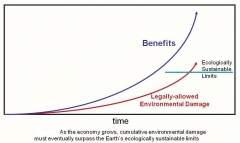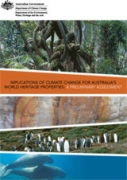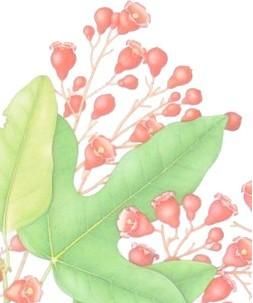
Logan and Albert Conservation Association

 In a new article published in the Barry Law Review, Science & Environmental Health Network SEHN Legal Director Joe Guth argues that we have long assumed we can tolerate the endless growth of small increments of environmental damage in the pursuit of economic growth. But now, the mounting cumulative impact of the human enterprise is threatening the long-term habitability of the biosphere. The law will have to abandon its use of cost-benefit analysis to justify individual environmental impacts and instead adopt the goal of maintaining the functioning ecological systems that we are so dependent upon.
In a new article published in the Barry Law Review, Science & Environmental Health Network SEHN Legal Director Joe Guth argues that we have long assumed we can tolerate the endless growth of small increments of environmental damage in the pursuit of economic growth. But now, the mounting cumulative impact of the human enterprise is threatening the long-term habitability of the biosphere. The law will have to abandon its use of cost-benefit analysis to justify individual environmental impacts and instead adopt the goal of maintaining the functioning ecological systems that we are so dependent upon.
The article can be read or downloaded here . 35 page article.
Degradation of ecosystems from human activities is worsening. Scientists are also explaining clearly that human beings are utterly dependent on a biologically functioning biosphere, and that to survive and prosper we need the very ecological systems that we are so quickly degrading.
It's time for a new economic paradigm - By David Suzuki with Faisal Moola
I've heard economists boast that their discipline is based on a fundamental human impulse: selfishness. They claim that we act first out of self-interest. I can agree, depending on how we define self. To some, 'self' extends beyond the individual person to include immediate family. Others might include community, an ecosystem, or all other species.
I list ecosystem and other species deliberately because we have become a narcissistic, self-indulgent species. We believe we are at the centre of the world, and everything around us is an 'opportunity' or 'resource' exploit. Our needs or demands trump all other possibilities. This is an anthropocentric view of life.
Thus, when faced with a choice of logging or conserving a forest, we focus on the potential economic benefits of logging or not logging. When the economy experiences a downturn, we demand that nature pay for it. We relax pollution standards, increase logging or fishing above sustainable levels, or (as the federal Canadian government has decreed) lift the requirement of environmental assessments for new projects.
A fundamentally different perspective on our place in the world is called 'biocentrism'. In this view, life's diversity encompasses all and we humans are a part of it, ultimately deriving everything we need from it. Viewed this way, our well-being, indeed our survival, depends on the health and well-being of the natural world. I believe this view better reflects reality.
The most pernicious aspect of our anthropocentrism has been to elevate economics to the highest priority. We act as if the economy is some kind of natural force that we must all placate or serve in every way possible. But wait! Some things, like gravity, the speed of light, entropy, and the first and second laws of thermodynamics, are forces of nature. There's nothing we can do about them except live within the boundaries they delimit.
But the economy, the market, currency - we created these entities, and if they don't work, we should look beyond trying to get them back up and running the way they were. We should fix them or toss them out and replace them.
 Ipswich Koala Protection Society is one of the key groups that have formed an alliance to fight the nexus between developer donations and political decisions.
Ipswich Koala Protection Society is one of the key groups that have formed an alliance to fight the nexus between developer donations and political decisions.
"We're tired of writing submissions and 'comments' that seem to be ignored," said Helen Darbellay, IKPS Secretary, "they have not provided any protection to Ipswich koalas in the past and are not likely to in the future unless serious changes are made to stop landclearing and protect essential regrowth" she said.
"About six years ago we, (IKPS) worked with Ipswich City Council planners to identify and map key areas of koala habitat only to have much of it 'unmapped' by the state government" Ms Darbellay said.
"The comparison between koala observations in Ipswich and the latest GHD koala habitat mapping show little recognition of large areas of high density and important lower density koala landscapes throughout Ipswich, with Ipswich being shown as largely white space on the GHD map," she said.
"The Regional Plan maps and Infrastructure plans threaten core areas and koala corridors. The proposed Southern Freight Rail Corridor threatens large tracts of prime habitat, known to be home to a large population of healthy koalas. The area is an undocumented Biodiversity hotspot, yet is afforded no protection under any local, State or Federal legislation.
"The koala as an umbrella species and fauna icon should be declared Endangered"
Please browse the pages of the IKPS's website to learn more about their activities. Based in South-East Queensland, IKPS is an incorporated group that provides a 24/7 ambulance service for more than 100 sick, injured or orphaned koalas each year. IKPS helps to raise baby koalas orphaned by motor vehicles and domestic dog attacks. IKPS plants trees that provide koalas food to replace those lost as a result of development.
IKPS provides information to the community and to local government on koalas, their needs and their future. IKPS has no paid staff ... everyone is a volunteer. And you can help too!
Any assistance you can offer will be greatly appreciated.
Koalas to lose ‘prime habitat' is all too familiar headline we are reading constantly in newspapers from areas all across south east Queensland.
Media Release
Monday, August 17, 2009
SOUTH EAST QUEENSLAND KOALA ALLIANCE FORMED
TO FIGHT DEVELOPER INFLUENCE
Representatives from key community organisations across South East Queensland met today at Griffith University to form an alliance with one key purpose - to save the koala and with it, our South East Queensland quality of life.
From the Gold Coast, Sunshine Coast, Ipswich, Logan, Caboolture, Redlands, Scenic Rim and Brisbane groups repeatedly gave the same stories of how the State Government's South East Queensland Regional Plan is eradicating the koala and systematically destroying the environment and values that make South East Queensland such a special place.
"Today clearly confirmed that the State Government's SEQ Regional Plan is the blunt instrument which is killing off the koala all across South East Queensland. The Regional Plan and the Infrastructure Plan serve the interests of the development industry, not the community and certainly not the koala. The words and maps in the Plan reflect Government denial of the serious plight of the Koala," said Ted Fensom of the Brisbane Region Environment Council (BREC)
Wayne Cameron of Bulimba Creek Coordinating Catchment Committee Inc. (B4C) agrees: "The koala is the canary in the coal mine. Its spiralling numbers and potential local extinction are a direct consequence of the development which is overwhelming the environment and diminishing quality of life across South East Queensland."
Simon Baltais of the Wildlife Preservation Society of Queensland (WPSQ) added: "There is not a day goes by in SEQ that a community group cannot point to a development outcome that ignores the science and the community yet seemingly favours the developer."
"We all know that ‘he who pays the piper call the tune' and so one of the key objectives of the Alliance is to break the nexus between developer donations and political influence. The Alliance will be pushing for a Royal Commission into developer-funded electoral campaigns and seeking to ensure that this hijacking of democracy is brought to an end in Queensland," said Simon Baltais.
Lavinia Wood of the Community Alliance for Responsible Planning (CARP) Redland Inc. agreed, adding "The SEQ Regional Plan is the product of a pro-growth agenda delivering short-term financial advantage to developers, but long-term disadvantage and harm to the people and wildlife of South East Queensland. Clearly the Regional Plan must be amended immediately to prevent this from happening."
David Stephen of FAIR GO Committee who is dealing with the Southern Freight Rail Corridor through key koala habitat said,
"It's fantastic to see city and rural folk working together to save the koala and our children's future."
Lynn Roberts of the Koala Action Group & Eprapah Creek Catchment Landcare Association Inc. (ECCLA) summed up the value of the Alliance, "Today was inspiring - the community coming together to take on a David and Goliath battle, groups setting aside any differences to rescue SEQ from developer-driven planning. This is all about putting the decisions about the future back in the hands of the people."
Contacts:
Lavinia Wood - This email address is being protected from spambots. You need JavaScript enabled to view it.
Simon Baltais - Mobile: 0447 539 968
 Brisbane, Australia - July 10 2009 saw the launch of a national book reuse and recycling program to save thousands of books from landfill and help those in desperate need of educational resources. Most of us love a good book, but what happens to the book when we have finished reading it? In many cases it is probably packed into storage, gathering dust on the shelf or thrown out in the rubbish.
Brisbane, Australia - July 10 2009 saw the launch of a national book reuse and recycling program to save thousands of books from landfill and help those in desperate need of educational resources. Most of us love a good book, but what happens to the book when we have finished reading it? In many cases it is probably packed into storage, gathering dust on the shelf or thrown out in the rubbish.
Sustainable Insight, an online sustainability and environmental bookstore has taken an active step to extend the lifecycle of these books by launching ReRead, a new national book reuse and recycling program.
The aim of ReRead is to provide better resource management of books, by providing books donated by the public to charities, schools and not-for-profit organisations who are in need of resources for their libraries and education programs. Only books that are badly damaged and deteriorated beyond repair, will be recycled through an appropriate paper recycling service. In turn this is intended to reduce the number of books ending up in landfill and conserve the environment by encouraging the use of second hand books instead of new.
Visit the online bookshop website to find out more about the program and collection dropoff places.
 | Find local solutions to global problems at Hillbrook Anglican School's Sustainability Day Environmental Expo Saturday 22 August 2009 - including new and ongoing Recycling initiatives for Hillbrook Sustainability Day. |
What can you recycle on the day -
Read more about the day - speakers' program, market stallholders,entertainment and recycling opportunities at the school's website for the event.
Free Speakers - Kate Jones MP, Opening 10am, Annette McFarlane, ABC Gardening Guru and many more great presenters
Market Stalls showcasing green businesses
Variety of local Food Stalls
Free Music
Free Activities for kids and prizes to give away
Photography exhibition
Australia's unique biodiversity is under threat and needs your help.
 Tiwest Night Stalk runs from 1 September to 16 October with the aim of getting members of the community out into nature to do some spotlighting for wildlife.
Tiwest Night Stalk runs from 1 September to 16 October with the aim of getting members of the community out into nature to do some spotlighting for wildlife.
In previous years, this community action program has focused on marsupials and introduced species but now its scope has been broadened to include all animal species, native and introduced. Each year will focus on a particular group of animals. In 2009 Perth Zoo is asking Tiwest Night Stalkers to keep a keen eye out for unique bird species.
Tiwest Night Stalk is easy, fun and something everyone can do. All you need is a torch and the Spotter's Log. Choose a night or number of nights between 1 September and 16 October and spotlight in your local bushland. Record all the mammals, birds, bats, reptiles and frogs that you find and then send your Spotter's Log to Perth Zoo or email it in via the online form.
The information will be collated and made available online for interested members of the community. It is also sent to conservation agencies to help determine the number of animals still living in the wild, especially near urban areas, to better direct conservation efforts. This regular monitoring can provide a valuable record of changes to the distribution of animals over time and help the community realise which species live in the various habitats surrounding them.
Tiwest Night Stalk is a great way to become involved in community conservation action and to learn about our native animals, their habitat and their threats.
Get involved and more information can be found on Perth Zoo website.
The report Implications of climate change for Australia's World Heritage properties: a preliminary assessment is available from the government website  Department of Climate Change and the Department of the Environment, Water, Heritage and the Arts, from June 2009.
Department of Climate Change and the Department of the Environment, Water, Heritage and the Arts, from June 2009.
In the government's own words
World Heritage properties are important to all people and have a universal value that transcends national boundaries. Australia's 17 World Heritage properties include the world's largest, the Great Barrier Reef, extensive natural and Indigenous places like Kakadu National Park, isolated marine and terrestrial areas such as Macquarie Island, and Sydney Opera House, an architectural masterpiece.
Accordingly we should be able to expect that federal state and local governments will act to protect these significant properties.
You can download and read the report here
Other adapting to climate change publications available here http://www.climatechange.gov.au/impacts/publications/index.html
Climate Change Adaptation Actions for Local Government was released in June. You can read and download that document from this site. http://www.climatechange.gov.au/impacts/localgovernment/pubs/localadaption_localgovernment.pdf
It could be useful to review some of these publications prior to commenting on Draft South East Queensland Climate Change Management Plan. Publications and information is available from http://www.dip.qld.gov.au/climatechange.
Logan City Council's submission to the draft South East Queensland Regional Plan 2009-2031 does not yet appear to be available directly on council's website. However it is
accessible in full as part of the minutes of the general meeting of 4 August 2009. Read the minutes and submission here. Go to PD4 File No: 399117-1 Id No: 5977012
You may - or may not - be surprised that Logan asked state government to extend the urban footprint in areas such as Logan Village, Jimboomba, Bahr's Scrub and North Maclean..
Does this reflect your lifestyle values?
A TRIBUTE TO FATHER BENEDETTO SCORTECHINI - A PIONEER, PRIEST & BOTANIST
 The name of Father Benedetto Scortechini is relatively unknown or forgotten today even within botanical circles, although many plant species bear his name. Many people know nothing of his life as a pioneer priest in the 1870's, or the part he played in the lives of our early settlers, particularly those of the Irish immigrants to the Logan area of SE Queensland.
The name of Father Benedetto Scortechini is relatively unknown or forgotten today even within botanical circles, although many plant species bear his name. Many people know nothing of his life as a pioneer priest in the 1870's, or the part he played in the lives of our early settlers, particularly those of the Irish immigrants to the Logan area of SE Queensland.
His significant contribution, as an avid botanist, to the scientific/botanical knowledge of the flora of SE Queensland, goes mostly unrecognized.
We would like to pay tribute to him by bringing his life and in particular his botanical discoveries and contributions to everyone's attention in this year of celebrations for the Sesquicentenary of Queensland.